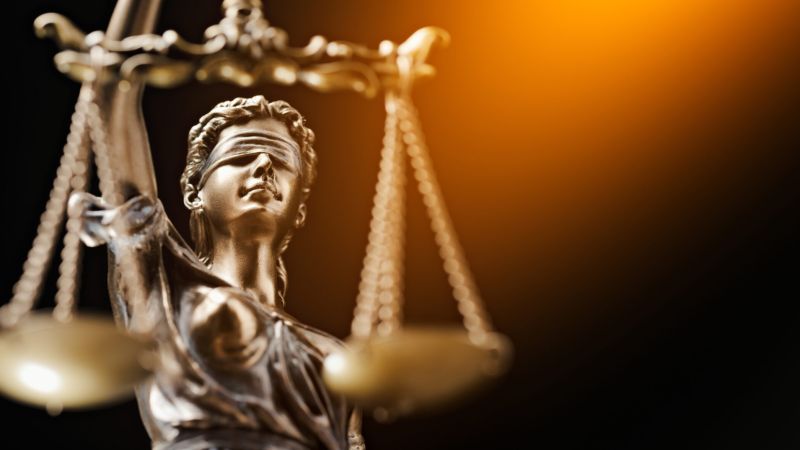Rampant Plea Bargaining Is a Raw Deal for Defendants
A new report details how plea bargaining can hurt defendants and warps the justice system.

A new report from the American Bar Association (ABA) presents more evidence that the ubiquitous use of plea bargains distorts the justice system and puts defendants at a disadvantage. Roughly 98.3 percent of federal criminal convictions result from guilty pleas, as do roughly 95 percent of state convictions. "Some jurisdictions have not had a criminal trial in many years," the report notes. Nor is a guilty plea an absolute assurance of guilt: 18 percent percent of documented exonerations had previously pleaded guilty, as did nearly 11 percent of defendants exonerated by DNA evidence since 1989.
To make defendants plead guilty rather than go to trial, prosecutors threaten harsher sentences, bail impositions, indictments of the defendant's family members, and more. "Some prosecutors will threaten to amend charging documents by adding charges to induce the defendant to plead guilty," the report states. Further, some prosecutors strategically threaten to bring charges with mandatory minimum sentencing requirements. The ABA task force members differ on the prudence of abolishing mandatory minimums outright, but "all members agree that where mandatory minimums remain in statutory form, they should not be used to induce pleas of guilt through the plea bargaining process."
The "trial penalty" defendants incur when they refuse to plead guilty is reflected in the sentencing data reported by the ABA. In federal felony cases, average sentences handed down at trial are seven years longer than convictions resulting from a plea bargain. "Although a modest reduction in sentence is justified in some cases resolved through guilty pleas because a defendant accepts responsibility, sentences should not be punitively inflated simply because a defendant exercised a fundamental right," the report argues.
Plea bargaining in many cases allows prosecutors to circumvent the defendant's right to an attorney—particularly in misdemeanor cases and in rural areas. And even with counsel, a hastily accepted plea deal forecloses the opportunity to expose potential governmental abuse. "Challenges to police misconduct are typically resolved through pretrial litigation, but the death of the trial has also increasingly meant the death of pretrial litigation, including those hearings that would bring to light police misconduct," the report states. "Trial and pretrial litigation are essential for holding police and other state actors accountable, and plea bargaining has eroded these systems of accountability." Moreover, many "defendants are often denied discovery, including exculpatory evidence, before they make the decision to plead guilty."
Another impediment to reform is the secretive and unrecorded nature of many plea-bargaining procedures. "To ensure that trial judges and reviewing courts have a full and accurate record of the plea negotiations, all plea offers, whether accepted or not, should be in writing and filed with the court prior to sentencing or dismissal of the case," the report says, adding later that, "to avoid…coercion, once an initial charging decision has been made after the careful process outlined above, charges should be amended only based on material changes in the available proof or in the interests of justice."
The right to a jury trial is the only right protected in the original Constitution and the Bill of Rights. "I consider trial by jury as the only anchor ever yet imagined by man, by which a government can be held to the principles of its constitution," wrote Thomas Jefferson to Thomas Paine. John Adams held that "representative government and trial by jury are the heart and lungs of liberty." The celebrated 18th-century English jurist William Blackstone declared the right "the glory of the English law."
Reinvigorating the right to trial by jury is a difficult task, the report concedes, due to widely varying procedures across and within jurisdictions. Even "similarly situated defendants in the same county, arrested on the same day, may have dissimilar experiences when taking a plea for no other reason than the identity of the judge on the bench that day," the report relates.
Plea bargains have a single great advantage: They increase the efficiency of the justice system. "Efficiency has a role to play in criminal law policymaking, but it should not be the primary goal of that policy," the report counters. "Rather, the goal should be a criminal justice system where defendants are guaranteed due process, victims receive justice, and the rule of law can flourish."


Show Comments (41)